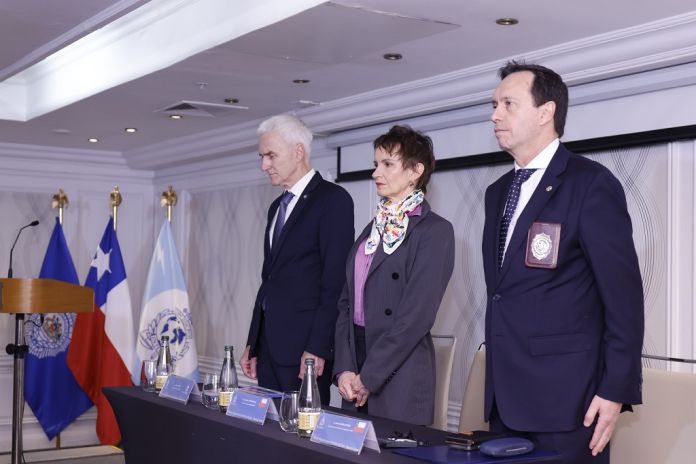SANTIAGO, Chile – South American Police Chiefs have committed to increased use of INTERPOL to address the growing national security threat posed by transnational crime and associated violence.
The two-day meeting of police leaders from the region concluded with a declaration endorsing enhanced cooperation and action across a range of areas, including:
- The need to stem the financial flows and illicit profits generated by organized crime;
- Joint strategies with national authorities responsible for prisons and detention centres;
- Greater interaction with customs and immigration services to combat crimes such as drug and firearms trafficking;
- Increased use of INTERPOL’s databases and tools, particularly the Notices system.
INTERPOL’s Regional Bureau (RB) for South America, based in Buenos Aires, was also recognized as providing valuable support for coordinating the operational response to priority crimes such as child sexual abuse, corruption, cybercrime, human trafficking and migrant smuggling, money laundering and terrorism.
In this respect, the police chiefs also committed to contributing strategic information to the Regional Bureau for the development of analytical reports on criminal trends across the region and to identify potential and suspected transcontinental links.
INTERPOL secretary-general Jürgen Stock, said:
“Transnational organized crime is growing and evolving at an increasingly unbridled pace. The result is law enforcement now dealing with a multi-crime world, where international threats are impacting at the national and local levels.
“It is by bringing together police leaders, hearing the challenges they face that we can jointly identify the most effective way forward in strengthening the global security architecture. This is exactly what this meeting of South American Police Chiefs has done.”
Police chiefs and directors from Argentina, Brazil, Chile, Colombia, Guyana, Paraguay, Peru, Suriname, Uruguay and Venezuela took part in the high-level event which is due to be held every two years for a review of the evolving regional crime situation and law enforcement response.





